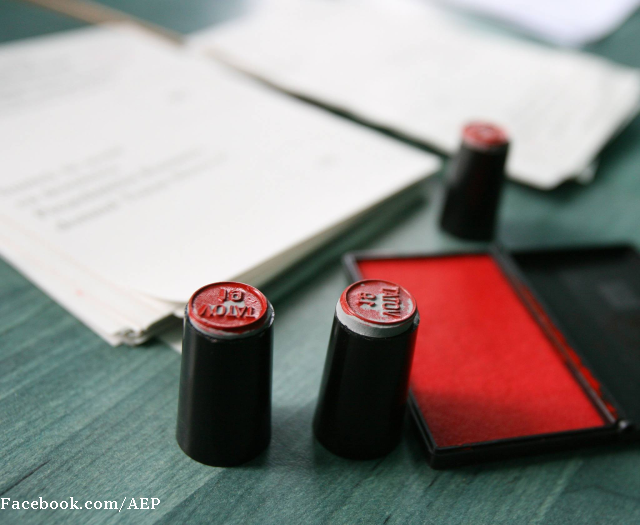A New Legislative in Bucharest
At the end of such an unusual election campaign, the pandemic, was the one dominant topic

Corina Cristea, 11.12.2020, 13:14
At the end of such an unusual election campaign, in which the pandemic, with all its consequences, was the one dominant topic, the parliamentary elections on Sunday last week struck the record for the worst show up in the history of democratic Romania over the last three decades. More than two thirds of Romanian voters chose to not choose. It was not exactly a surprise, because looking at previous elections shows us that parliamentary elections do not spark much interest in general.
Political analyst Radu Tudor, speaking on Radio Romania, told us why he thinks this turnout was so small:
“There is the fear of the virus, indisputably, and I think this is the main reason. The second is the impossibility of finding a persuasive choice for people to make. I heard this many times, There is no one to vote for — I wont vote with the left because I normally dont vote for the left, I dont vote for the right because they had a pretty disheveled governance, and so on. Others are accused of the lack of an ideological identity. Unmet commitments have managed to spark a huge resentment towards voting, towards elections, so that the alarm signal sounded today in terms of voter turnout should be a cold shower, an Ice Bucket challenge for all political parties in Romania. Unfortunately, there is a sum of features that the Parliament and its members have that make this fundamental institution of democracy have the lowest level of trust in Romania. Our instincts are profoundly democratic, and more than that, Romania is a weathervane for feelings about the Western system of values, of belonging into the EU and NATO, but Parliament is failing the citizenry. For the last 30 years, Parliament could not break through the ceiling of 15% favor rating.”
However, the electorate voted for a Parliament that has five political structures in it: the Social Democratic Party, the National Liberal Party, the Union to Save Romania PLUS alliance, the Alliance for the Union of Romanians, AUR, and the Democratic Union of Hungarians in Romania.
Here is Radu Tudor with an analysis:
“The first and simple solution is that the Social Democrats have won the elections, and most likely will not govern. The second simple solution is that the Liberals, the SRU and the DUHR will form a governing coalition, which would be good news, not because of the parties making up the coalition, but due to the fact that we would have a political stability, a clear parliamentary majority and a government to manage Romania, for better or worse, over the next four years. The third element is the Alliance for the Union of Romanians, AUR, this nationalist element, effect of the pandemic, based on the pattern that Donald Trump has generated all over the world, with conspiracy theories, fake news trends, manipulation, and last but not least an in your face fight against medical measures and medical science, which has been trying to guard us against this coronavirus. We had prominent figures in this AUR party that openly protested in front of the government building against wearing masks. The biggest surprise was that no one was able to anticipate the emergence of this current, not journalists, not sociologists, nor politicians. This current, I believe, appeared because of these 10 months of pandemic, the restrictions, frustrations, and revolt that emerged during this period.”
The AUR are a barely known party set up about a year ago, and which now got the votes of half a million Romanians or more, which pushed it into the fourth position in the new parliament. It is a party with a rapidly rising following, promoting family values, the nation, and the Christian faith. Most analysts believe that the Alliance for the Union of Romania is an ultra-nationalist, extreme right anti-European group. What is certain is that some statements from this party, which will surely be thoroughly scrutinized both from the country and abroad, raises reasons to worry, especially for foreign partners.
Dan Jurcan is a sociologist with the Romanian Institute for Evaluation and Strategy. He believes that the AUR is a reply in the political arena to the emergence, a few years ago, of the Union to Save Romania, a progressive party that fights for liberal values, and that this is the reaction of society to this liberalism:
“So what is, in fact, the AUR? They contrast LGBT rights with family values, they contrast globalism and multiculturalism at any cost with patriotism and nationalism. They contrast secularization with faith, free markets with economic protectionism, and so on. These are things already happening in Europe, in Hungary and Poland first of all, and it reached us here in Parliament. It is quite strange how they got here, because no one expected it, they were not visible on television, quite the contrary, they had an implicit embargo on commercial TV stations. However, they had a guerrilla strategy on Facebook, they managed to penetrate every group, irrespective of political orientation. They have a one to one strategy, through very well put together networks in the country and abroad, and that seems to be their recipe for success.”
Beyond any analysis, it seems that expectations floated for these elections to unmuddy the waters, but so far they just seem to muddy them further.






























